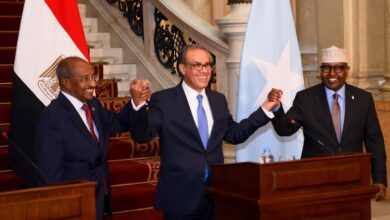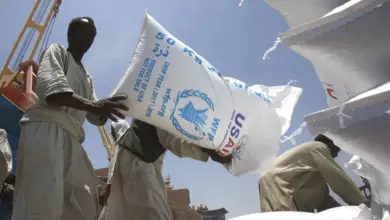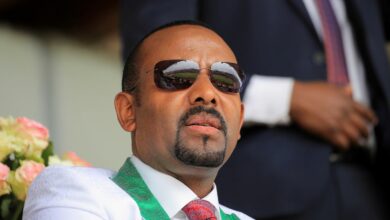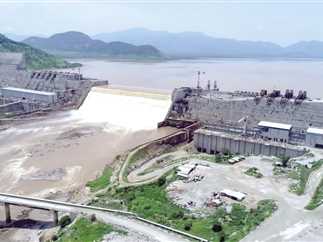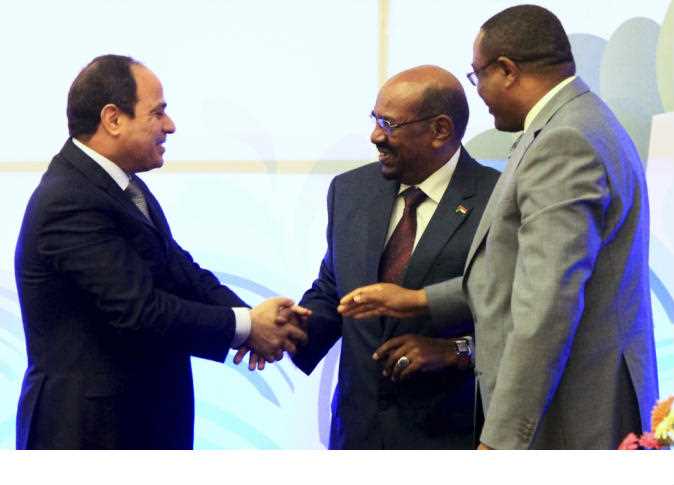
News of the failure to reach an agreement in the tripartite negotiations between Egypt, Ethiopia, and Sudan regarding the construction of the Grand Ethiopian Renaissance Dam (GERD) has stirred massive controversy in the Egyptian press and in government circles.
As has been pointed out by Egyptian officials, including the President himself, as well as a host of local newspaper, building the dam without granting Egypt its rightful share of Nile water poses a direct threat to the country’s water security.
The question that needs to be answered at this moment is what the appropriate response by the Egyptian government should be to the negotiation deadlock.
Discussions among Egyptian officials, media outlets, and specialists as to how to respond have centered around three axes: continuing direct negotiations with Ethiopia, turning over the case to international arbitration, or hindering the construction of the dam through the use of direct military force.
In the past few days, President Abdel Fattah al-Sisi made it clear that Egypt would not accept the reduction of its share of Nile water through the construction of the dam when he said, “no one can touch Egypt’s water”.
Showing its readiness to move forward in negotiations, Egypt has accepted a recently-released French ‘technical report’ on the effects of the dam on each of the three countries’ Nile water share. However, both Sudan and Ethiopia expressed reservations.
Following the news of the failure to reach a settlement, the Egyptian Cabinet released a statement in which it reiterated Egypt’s acceptance of the French report while also stressing the importance for Egypt to secure its water share. “Egypt’s water security is considered a crucial part of Egypt’s national security,” the statement read.
A few Egyptian media outlets have in the recent period also hinted that the failure of the talks between the three countries may push Egypt towards direct military action against Ethiopia.
However, neither a military strike nor international arbitration seems to be considered feasible strategies by the Egyptian government.
“Both military action against GERD and turning the issue to international arbitration are totally unacceptable strategies, as the International community would not allow Egypt to exert military force against Ethiopia. Furthermore, turning the issue to international arbitration would create hostilities and division in the African continent,” former assistant to Egypt’s Foreign Affairs Minister for African affairs Mona Omar told Egypt Independent on Monday.
She added that the best solution to the crisis is the continuation of negotiations with Ethiopia. However, the level of the representatives in the negotiations may have to be raised to include the highest leaders of the two countries, according to the former official.
In fact, Egypt’s official spokesperson of the Ministry of Foreign Affairs Ahmed Abu Zeid recently declared that a meeting will be held in December between Ethiopian Prime Minister Hailemariam Desalegn and President Sisi to discuss the issue.
Former undersecretary of Egypt’s General Intelligence Service Hatem Bashat also maintains that continuing talks between high-level negotiators is the only effective solution to solve the GERD crisis.
“The military option is totally refused by Egypt’s current political leadership. Egypt can use more effective and beneficial ways than military action,” he told Egypt Independent Monday.
Ethiopia is working to finalize the construction of the dam by 2018, and will thereafter use it to produce hydroelectric power.
Egypt fears that the dam will negatively affect Egypt’s agricultural production and further reduce its already scarce freshwater. Making things worse, Egypt’s population is rapidly growing, with the recent census by the country’s official statistics agency CAPMAS estimating it to be more than 100 million.
Meanwhile, both Ethiopia and Sudan are denying that the dam will have negative effects on Egypt.
“Egyptians should not wait until the real negative effects of the construction of GERD surface. There is a deliberate hostile trend from Ethiopia and Sudan towards Egypt and this is clear in their insistence to hinder the GERD negotiations with Egypt,” former chief of staff of the Egyptian army’s special unit 777 Hatem Saber told Egypt Independent Monday.
He added that “in the case of all alternatives failing, we have the right to destroy the GERD”.
Ethiopia’s and Sudan’s insistence on hindering negotiations from moving forward indicate that any future negotiations may face a similar fate, Saber went on to note. Meanwhile, Ethiopia is rushing to finish the construction of the dam while talks are still ongoing. This technique is similar to peace talks between the Palestinians and Israel whereby the latter creates irrevocable ‘facts on the ground’ to avoid making any concessions.
The Nile provides Egypt with more than 90 percent of its water needs, totaling 55 billion cubic meters per year out of a total of 88 billion cubic meters flowing through the river annually.
Despite the staunch warnings from Egyptian officials to continue the construction of GERD, no clear strategy has yet been presented regarding how Egypt will ensure that its share of the Nile water will be secured, following the meeting scheduled in December between President Sisi and the Ethiopian Prime Minister.
In the next phase of the GERD drama, it should be expected that Egypt signals how it will respond to the continued construction of the dam in the case of negotiations once again facing the wall of failure.

